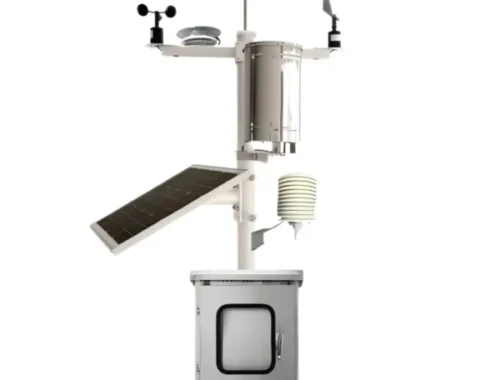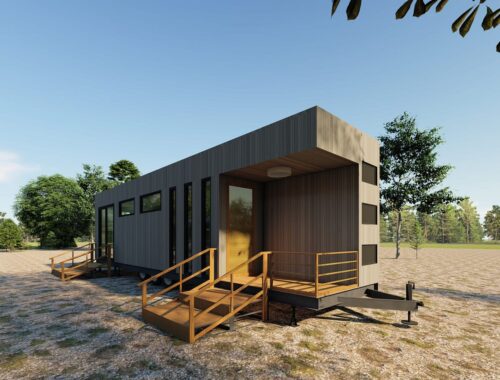A high-stakes game in the Balkans
A high-stakes game in the Balkans
While the EU wants to change how it deals with Bosnia and Herzegovina, the fragile peace in the country is rapidly deteriorating.
For close to 16 years, Bosnia and Herzegovina – the country that gave the world the term ‘ethnic cleansing’ – has been at peace. Ever since that peace was made at a US military base in Ohio, with European negotiators on the sidelines, the international presence in Bosnia has had two main pillars: a foreign high representative – always a European – in charge of civilian affairs; and armed peacekeepers in charge of security, first from NATO, and, since 2004, from the European Union. Now the EU wants to remove those two pillars and replace them with a ‘reinforced presence’.
In July, the EU’s member states decided to close down the EU’s police mission in Bosnia, EUPM. In October, they resolved to downsize the EU’s peacekeeping mission, Eufor.
The EU is now pushing for the relocation of the Office of the High Representative – currently headed by Valentin Inzko, an Austrian diplomat – out of the country altogether, as a prelude to its closure. It has already relieved Inzko of his second position, that of EU special representative (EUSR). Early in September, Danish diplomat Peter Sørensen took over as the first EUSR to be simultaneously head of the EU’s delegation in Sarajevo. This, European officials say, gives him additional authority in dealing with Bosnia’s politicians.
In the light of the closure of the EUPM and the downsizing of Eufor, the EU’s ‘reinforced presence’ is something of a misnomer, a point conceded by Miroslav Lajcák, the managing director for Russia, the eastern neighbourhood and central Asia in the European External Action Service. But Lajcák strongly defends the rationale behind the EU’s move – made possible, he says, because Bosnia no longer faces the security challenges it once did.
“Our responsibility is to adjust our presence to the needs of the country,” Lajcák told European Voice. “The situation in Bosnia and Herzegovina is not simple politically, but is definitely stable from the point of view of security. This has allowed us to amend our military presence in a way that will be lighter on the physical presence. But we still keep the mandate and we still have our ‘over-the-horizon’ forces. If necessary, we will be able to deploy forces on the ground immediately,” Lajcák said.
Reserve forces
Others, however, are worried by the vagueness of the EU’s plans for such reserve forces. Paddy Ashdown, who was the first EUSR in Bosnia, in 2002-06, warns that any reserve forces have to be “credible”. Ashdown told European Voice: “It is very important that we mean it,” referring to their deterrent capacity. “There is a deterioration in the stability of Bosnia and Herzegovina, a more and more dangerous transition. The dynamic is towards dissolution. This is not the time to withdraw troops.”
Analysts are concerned by the current posture of Eufor, which at present has fewer than 1,300 troops. In July, Austria, Bulgaria and Hungary – the main EU contributors – said in a discussion paper that Eufor is “more than 30% short of the minimum military requirements” and unable to deal with any serious security challenge in the country.
Fact File
Eufor
Eufor Althea, the EU’s largest ever mission, was launched in December 2004 to take over from NATO peacekeepers who had entered Bosnia after the Dayton peace accords of November 1995.
Eufor, just like NATO’s Implementation Force (Ifor) and its Stabilisation Force (Sfor), was supposed to contribute to a safe and secure environment through deterrence and reassurance. All three missions operated under a peacekeeping mandate from the United Nations Security Council, which allowed them to use force in self-defence.
Neither NATO nor the EU has suffered any combat casualties during close to 16 years of operations in post-war Bosnia.
EU foreign ministers agreed in October to downsize Eufor, without giving specific numbers, and to concentrate on ‘non-executive’ tasks such as the training of local security forces. They also decided to provide reserve forces to reinforce Eufor in case of serious disturbances – again without providing specifics. Eufor’s troops come primarily from Austria, Bulgaria, Hungary and Turkey. They number fewer than 1,300.
Military role
National foreign ministers met in Luxembourg on 10 October to discuss, among other topics, the situation in Bosnia. Below is an extract from the conclusions to that meeting:
“The [Foreign Affairs] Council confirmed the EU’s readiness to continue at this stage an executive military role to support Bosnia and Herzegovina’s efforts to maintain the safe and secure environment under a renewed UN mandate. The main effort of Operation Althea will be on capacity-building and training, while maintaining situational awareness and a credible reserve in case it is called upon to support efforts to maintain or restore the safe and secure environment.
“The operation will be reconfigured, with forces based in Bosnia and Herzegovina which will focus on capacity-building and training, while also retaining the means to contribute to the Bosnia and Herzegovina authorities’ deterrence capacity. A reserve force will be based over the horizon with regular in-country reconnaissance and rehearsal.”
EUPM
In July, member states’ ambassadors on the EU’s Political and Security Committee – the EU’s main decision-making body on security affairs – decided that the EU’s police mission in Bosnia (EUPM) should close in mid-2012.
The decision was a compromise between the UK, which wanted the EUPM to continue, and France and Germany, which wanted it to close right away.
The mission currently has 300 officials – around half of whom are local and half from the EU – and a budget of €17.6 million for 2011. It took over from a United Nations police force in 2003 and today focuses on supporting local law-enforcement agencies in fighting corruption and organised crime.
They called for Eufor’s mandate to be adapted, a process that has now begun with the decision taken by EU foreign ministers in October, in principle, to downsize to 500-600 troops. But Eufor’s core mandate, to contribute to a safe and secure environment, remains: the foreign ministers agreed to seek a renewal of this executive mandate at the UN Security Council later this month.
Unrest
A recent study by the Atlantic Initiative and the Democratization Policy Council – think-tanks based in Sarajevo and Washington, DC, respectively – spells out what the shortfalls identified in the discussion paper mean in practice. Eufor’s lack of helicopters means that peacekeepers would need to travel by road across the mountainous country should trouble break out in a remote corner. Following the erosion of its non-lethal capabilities, Eufor is unable to respond to civil unrest of the type that broke out in north Kosovo this summer. Eufor officials have informed foreign embassies that it will not be able to assist them with evacuations.
Patrick Moon, the US ambassador in Sarajevo, said that the Obama administration is “pleased” with the EU’s decision “to maintain Eufor in a training role for the Bosnian armed forces, and also for a potential security role should there be problems in the future”. “We support that, we think it’s important,” he told European Voice.
But despite Moon’s carefully chosen words and his insistence that the US and the EU work “hand in glove” in Bosnia, it is clear that US policymakers are concerned about Eufor’s capabilities. “We leave it to the EU to decide on how exactly they want to provide the forces to satisfy the requirements they set out,” Moon said. “We note their interest in exercising emergency over-the-horizon-type responses to a crisis, that sounds important and useful.”
Officials have voiced misgivings about the idea of reserve forces. The first problem is their availability. NATO, which has supported Eufor from its inception, has two reserve battalions; but one of them has been sent to the Kosovo-Serbia border following violence there this summer, and the other is on stand-by should the situation in Kosovo require further reinforcements.
The EU’s battle-groups – stand-by battalions of around 1,500 combat troops, and a logical source of reinforcements – have never been used in practice. Another question surrounding the use of reserves is whether the mission commander has the authority to call on them, or whether this might require the agreement of national governments – a question that delayed the use of over-the-horizon forces in Kosovo this summer.
Nobody is predicting that Bosnia will see another war. But the political situation has steadily deteriorated, as noted by the European Commission in its progress report on the country’s readiness to join the EU. Until now, this deterioration has been confined to politics. But there is one element that could provoke violence – the drive by the Bosnian Serbs to undermine the central government, which has been in caretaker mode since a general election in October 2010.
Click Here: Golf special
“Bosnia and Herzegovina is moving strongly towards dissolution,” Ashdown says, with Republika Srpska (RS) – one of two entities that make up the country – building up its own, quasi-state powers. “There is no doubt whatsoever that secession [of RS from Bosnia] is the aim of Mr Dodik,” Ashdown said, referring to the RS president, Milorad Dodik. Few outside observers believe that this can unfold without violence.
You May Also Like

Automatic Weather Station: An Overview of Its Functionality and Applications
March 14, 2025
ユニットハウスのメリットとデメリットを徹底解説
March 21, 2025